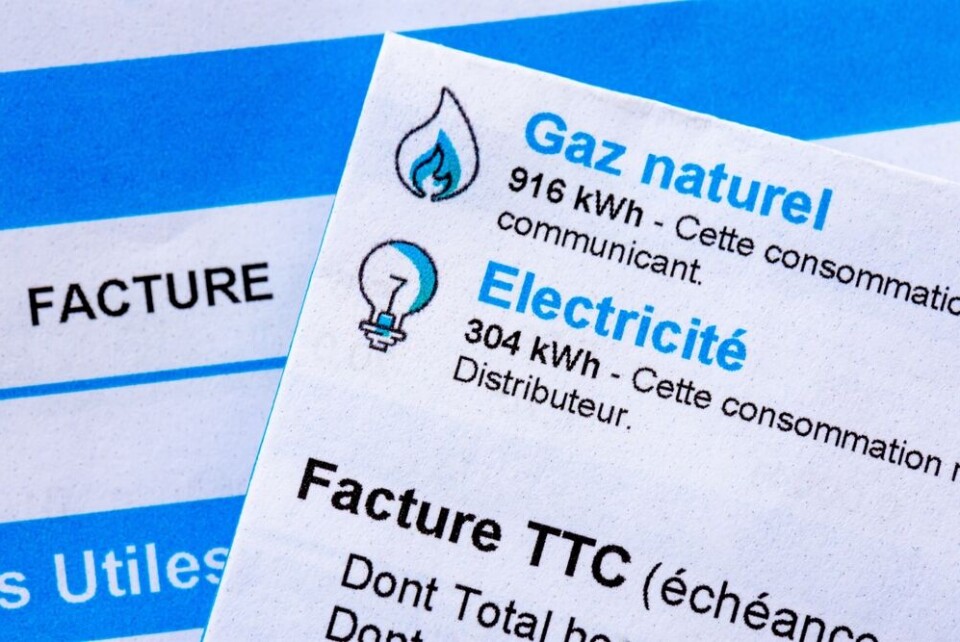-
How I managed to cut the cost of energy bills at my French home
Connexion reader Anthony Powell embraced renewable solutions in years-long renovation project
-
Good news as lower electricity bills confirmed in France
The change is not a ‘revolution’ but will give some purchasing power back, minister says
-
What savings can you make with an heures creuses electricity contract?
Off-peak hours are soon set to change
Six tips for comparing energy suppliers in France to lower bills
Looking at offers from competing suppliers - away from the regulated EDF and Engie tariffs - could save money over the course of your contract

Comparing electricity and gas suppliers is a tried-and-true way to get the best deal, and it is now more possible to compare and switch, as you can change supplier at any time, free of charge.
Supplier competition opened in France in 2007, and regulated gas prices were abolished in July this year (while regulated electricity prices are still available for individuals and small businesses on less than 35 kilovolt amperes, kVA).
When it comes to electricity supply, around 63% of households remained on the EDF regulated tariff, the latest report from the Commission de régulation de l'énergie (CRE) showed.
However, there are many alternative suppliers to EDF for electricity and Engie for gas. These include TotalEnergies, Vattenfall, Mint Energie, Eni, Alterna, Butagaz and Mega Energie.
The CRE estimates that the difference between contracts can be as much as €1,000 per year.
It comes as more than 20 million households in France have had higher electricity bills for most of this year after prices were capped at 15% (and not 4% as previously) from February 1, 2023.
Read more: Five questions about the rise in electricity prices in France
Read also: End of regulated gas prices in France – how to find the best deal
Here are some tips on how to compare and search for a better deal.
1. Look at the price per kilowatt-hour (kWh)
This enables you to calculate the real price you will pay, depending on your household’s personal usage. It is a good idea to check your usage over the past 12 months, and look at your bills, to be sure of how much you typically use, before comparing prices.
2. Be aware of how the price might change
For example, the offer may be for a fixed price, but this could be an introductory offer, and change after a number of months. You also need to be aware of any added subscription fees and taxes added to the baseline offer, which could make it much less of a good deal.
3. Check how the price is indexed
Some offers are indexed to the regulated tariff for electricity, and will change as that does. Gas prices can be indexed to the barème de référence (reference scale) or prix repère (benchmark price), both of which are regularly published and updated by the CRE.
The CRE warns that “market-indexed offers’ can lead to significant price rises during the term of the contract. “A contract indexed to the reference scale or benchmark prices is less risky,” it said.
4. Consider customer service and complaint rates
Check how you can contact your supplier, and its level of complaints. You can find out the rate of disputes received by the CRE for each supplier. ]
For example, in 2022, for suppliers with more than 100,000 customers, Mint Energie had the most disputes (856 per 100,000 customers), followed by 598 for Elmy-GreenYellow, 536 for Ohm Energie, and 289 for Ekwateur.
In contrast, Engie had 68, Ilek 50, and EDF 42.
5. Use a comparison website to help
While doing your own checks is always advisable, using an online comparison tool can help get you started and simplify your search.
The CRE has its own comparison tool on its website Energie-info.fr. Consumer magazine UFC-Que Choisir also has one on its website, and there are others such as Selectra.info and Hellowatt.
6. Buy in a group
Buying and negotiating through group consumer associations can lead to lower costs for each individual. You typically have to pre-register. The organiser will then announce the name of the winning supplier (this will be the one which offers the best terms and conditions based on your criteria).
You will then have the choice to sign or reject the proposed contract. As with any new subscription there is a 14-day cooling off period during which you can cancel the plan without fees.
For example, the consumer group UFC-Que choisir showed a group purchase of electricity until November 15, and said this would save people 12% compared to the regulated tariff.
Another electricity group contract - offered until February 2024 by Selectra - claimed a saving of 14%.
Read more: New 'group deal' pledges 12% savings on electricity in France
Should regulated tariff customers compare and switch?
Advice on whether regulated tariff customers should change is mixed.
“If you want to make some savings, it may be worth changing", says Caroline Keller, head of the CRE information department.
But in contrast, François Carlier, general delegate of the association Consommation logement et cadre de vie (CLCV), told Le Monde: “If you're on the regulated electricity tariff, it is best not to leave.
“The regulated tariff offer was capped at +10% on 1 August 2023 and offers both a very good price and contractual security, which is not the case with other suppliers.”
Related articles
Electricity bills to rise in France as price rise protection reduced
Electricity prices are rising in France: How much more will you pay?
How France plans to avoid electricity price spikes
























